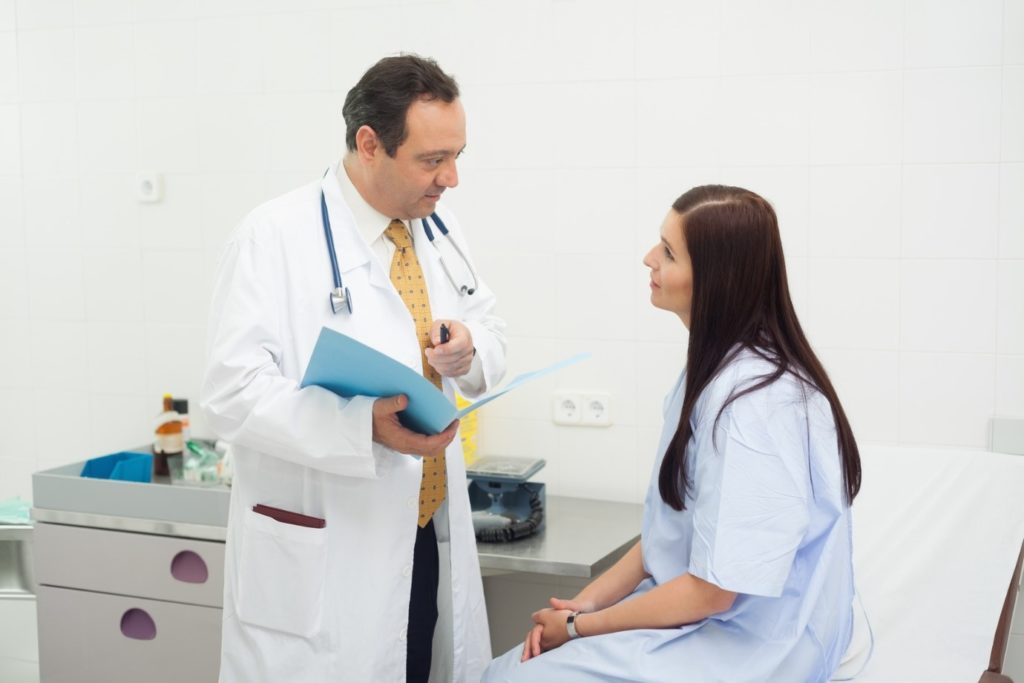PCOS or Polycystic Ovary Syndrome is a hormonal syndrome that women suffer from after hitting puberty. PCOS often means lower progesterone, which can cause an irregular period schedule. Your body may also react differently to insulin than it should, and you may also have elevated levels of androgens in your body.
However, unlike what the name seems to imply, only some women who have PCOS will develop cysts in their ovaries. Instead, you may have irregular period cycles, get acne, and the condition may make it more difficult to get pregnant.
You should know that there is no one test that determines whether someone has PCOS which is why it can be difficult to diagnose. However, treatment can help you manage your symptoms allowing you to live a normal and healthy life. But, to get the most benefit from treatment, it’s important to get diagnosed early.
Here are some symptoms that you can look for to determine whether you should see a doctor for possible PCOS or other ovarian syndromes.

Irregularities in Period Timing and Flow
PCOS can cause irregular menstrual cycles, which means both frequent and rare periods. At times you may have too much time in between each period (upward of 35 days), while at other times, you may have periods too close to each other.
Another indicator is the intensity of your period. If the flow is abnormally heavy, even when your cycles are smaller and you suffer from intense PMS symptoms, this can indicate possible PCOS.
Hair Loss and Growth
Hair loss from the head is a common symptom of PCOS. Thinning hair, especially from the top and front, as seen with male pattern hair loss, can be a result of higher androgen and testosterone in your body.
Having excessive body hair in places like your belly, hands, feet, chest, and face (called hirsutism) is also an indicator that you could have PCOS.
Unresponsive, Consistent Acne
The hormonal changes associated with PCOS can also cause you to overproduce oil and lead to stubborn acne. While some dermatological treatment and skincare routines can help, the consistent presence of acne can be a telltale sign.
Sleeping Problems and Fatigue
You may also experience trouble falling asleep or experience sleep apnea during your sleep. This will lead to fatigue and exhaustion over the long term.
Gaining Weight Rapidly
PCOS is also associated with weight gain and the more weight you gain, the more you may suffer from irregular periods. If you lose weight and it stabilizes your period, it could mean that you have PCOS. However, this isn’t a conclusive indicator that PCOS is the problem here, so be careful not to jump to conclusions without a professional diagnosis. Weight gain and irregular periods can also be associated with a number of other conditions.

Dark Patches of Skin
Dark patches of skin with a velvety texture in areas like the groin region, under the breasts, underarms, and on the nape of your neck is a condition called acanthosis nigricans and is a possible symptom of PCOS.
In conclusion, it’s important to remember that all of these symptoms are not definite signs that you have PCOS. When your doctor evaluates your symptoms, they will look at them in conjunction with each other and run tests to ensure that they have the right diagnosis.
We can’t stress enough the importance of seeing your doctor early when symptoms first occur. This can go a long way to increasing the effectiveness of whatever treatment your doctor recommends.
As one of the leading surgical and specialty hospitals in Houston, Texas, we’ve treated thousands of women who suffer from PCOS and other gynecological issues. We also provide physical therapy services and have some of the best spine surgeons in Houston.
If you have symptoms that lead you to believe that you may have PCOS, visit the Houston Physicians’ Hospital for more information and to find a gynecologist that’s right for you.

